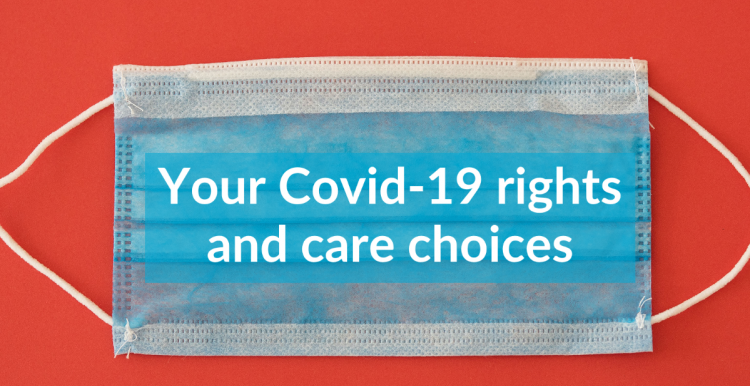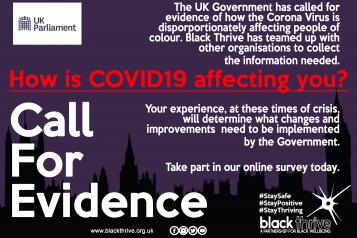Know your Covid-19 rights and care choices

Here is a summary of some key recent legal changes which could affect your health and care services, information about Covid-19 treatment options and ways to record the care you do and don’t want in case you become very unwell.
Changes to the law
In March, the Government introduced emergency legislation to help it respond to coronavirus. The new laws affect health and care services in a range of ways, for example:
Mental health services
- Allowing detention of patients under the Mental Capacity Act based on just one doctor’s opinion rather than two as previously required.
- Under extraordinary circumstances, extension or removal of time limits on patient detention under the Act.
More about the changes to the Mental Capacity Act
Social care
- Hospitals can delay assessing people’s needs for community or continuing healthcare when they are discharged, to enable services to move patients out of hospital as soon as they are medically fit.
- Councils can opt not to carry out detailed needs and financial assessments or care reviews for everyone. They can also prioritise the most urgent needs, for example by providing extra support to people who are ill or self-isolating and to temporarily delay or reduce other care support.
More on the changes to the Care Act
Covid-19 care options
There are a range of care options for people who contract the Covid-19 virus. The most common serious problem people experience is difficulty breathing. This can be treated outside of hospital (including your own home), or on a hospital ward with an oxygen mask or in a hospital critical care unit for those who need other treatment to allow the illness to run its course.
More about these different care settings
Recording your care wishes
You can make an advance care plan to record your future treatment and care wishes. So if you become critically unwell, for example with Covid-19, your loved ones and care professionals will know what you do and don’t want. The NHS is encouraging people, particularly those at highest risk of Covid-19, to make a plan. It’s a good thing for everyone to do and it’s free. Find out more about how to make an advance care plan.
Do Not Attempt Resuscitation forms
‘Do not attempt resuscitation’ (DNAR) forms or orders have been in the news lately because of reports that they were being applied to groups of people instead of individually. NHS England has confirmed this must not happen.
The forms are added to a person’s medical record to say that cardiopulmonary resuscitation (CPR) will not be attempted. They are used when a doctor decides that resuscitation is not in the person’s best interest, because it is unlikely to work or could cause the person too much harm. But the doctor must always discuss the form with the person (or their family if they are unable to talk to the doctor themselves). If the person or family disagrees with the decision they can ask for a second opinion.
You might also decide for yourself that you wouldn’t want CPR. If you do make that choice, you can talk to your doctor about a DNAR form and record your decision in an advance care plan.
Health complaints paused
The Parliamentary and Health Service Ombudsman which reviews unresolved complaints is not accepting new health service complaints or progressing existing ones where this requires contact with the NHS, to avoid additional burdens on the NHS during the national emergency.
